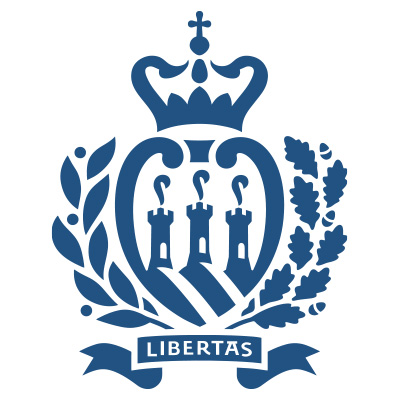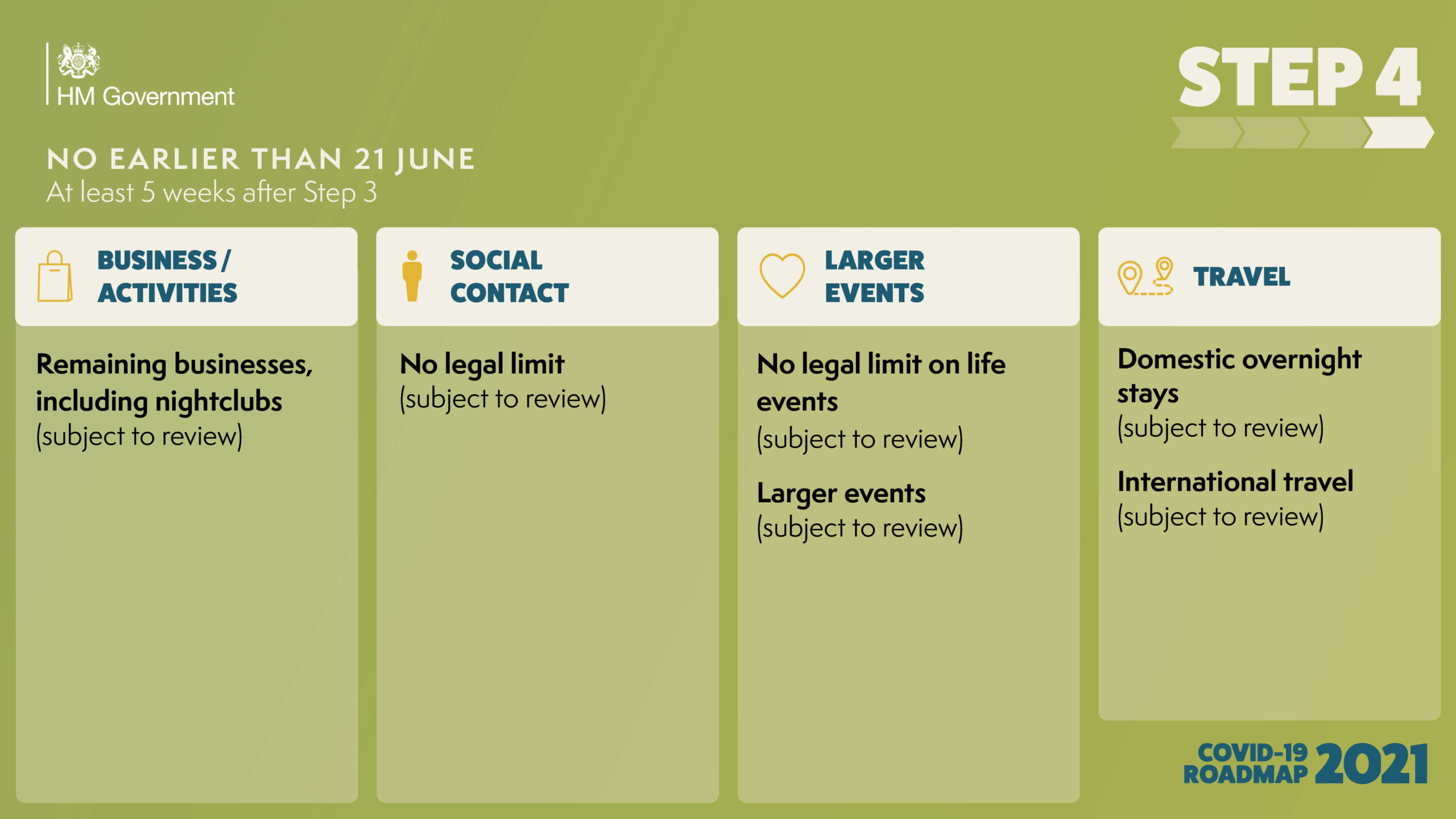From 19 July 2021, the whole United Kingdom has relaxed the Covid-19 legal restrictions. All 4 nations have changed the rules as below:
England
From 19 July 2021 England has moved to Step 4 of the roadmap. Most legal restrictions to control COVID-19 have been lifted at step 4. This means that:
- You do not need to stay 2 metres apart from people you do not live with. There are also no limits on the number of people you can meet.
- However, in order to minimise risk at a time of high prevalence, you should limit the close contact you have with those you do not usually live with, and increase close contact gradually. This includes minimising the number, proximity and duration of social contacts.
- You should meet outdoors where possible and let fresh air into homes or other enclosed spaces.
- The Government is no longer instructing people to work from home if they can. However, the Government expects and recommends a gradual return over the summer.
- The requirement to wear face coverings in law has been lifted. However, the Government expects and recommends that people wear face coverings in crowded areas such as public transport.
- There are no longer limits on the number of people who can attend weddings, civil partnerships, funerals and other life events (including receptions and celebrations). There is no requirement for table service at life events, or restrictions on singing or dancing. You should follow guidance for weddings and funerals to reduce risk and protect yourself and others.
- There are no longer restrictions on group sizes for attending communal worship. COVID-19 has not gone away, so it’s important to remember the actions you can take to keep yourself and others safe. Everybody needs to continue to act carefully and remain cautious.
Businesses and venues
All remaining closed businesses and venues such as nightclubs and adult entertainment venues are able to reopen. All capacity limits at sporting, entertainment, or business events have been lifted.
Hospitality venues such as pubs, restaurants and bars are no longer required to provide table service or follow other social distancing rules.
All businesses should follow the principles set out in the working safely guidance. Whilst the Government is no longer instructing people to work from home if they can, the Government would expect and recommend a gradual return over the summer.
Employers still have a legal duty to manage risks to those affected by their business. The way to do this is to carry out a health and safety risk assessment, including the risk of COVID-19, and to take reasonable steps to mitigate the risks you identify. Working Safely guidance sets out a range of mitigations employers should consider including:
- cleaning surfaces that people touch regularly
- identifying poorly-ventilated areas in the venue and taking steps to improve air flow
- ensuring that staff and customers who are unwell do not attend the workplace or venue
- communicating to staff and customers the measures you have put in place.
We encourage organisations in certain settings to use the NHS COVID Pass as a condition of entry, in order to reduce the risk of COVID-19. This will especially be the case in large, crowded settings (such as nightclubs) where people are likely to be in close proximity to others outside their households.
To support organisations and individuals in these settings, the NHS COVID Pass will be made available through the NHS App, NHS.UK, or as a letter that can be requested by ringing NHS 119. Visitors will also be able to show text or email confirmation of test results. Organisations should ensure they are in compliance with all legal obligations, including on equalities.
There are some settings where the NHS COVID Pass should not be used as a condition of entry, in order to ensure access for all. This includes essential services and essential retailers which have been able to stay open throughout the pandemic.
Businesses are also encouraged to continue displaying QR codes for customers wishing to check in using the NHS COVID-19 app, or to continue collecting customer contact details to support NHS Test and Trace, however this will no longer be a legal requirement.
Fully vaccinated people returning to England from most amber list countries will not need to quarantine.
From 16 August 2021
If you’re fully vaccinated or under 18, you will not need to self-isolate following close contact with someone who has COVID-19. You’ll still need to take a PCR test and self-isolate if it’s positive.
Northern Ireland
Socialising indoors and outdoors
Up to 6 people from 2 households can socialise indoors, including for overnight stays. Up to 15 people from up to 3 households can meet in a private garden.
Find out more about what you can and cannot do in Northern Ireland on nidirect.
Scotland
From 19 July 2021
All of Scotland has moved to Level 0. Up to 8 people from 4 households can meet in your home. Up to 15 people from up to 15 households can meet outside.
Read the rules for Scotland on GOV.SCOT.
Wales
From 17 July 2021
Wales has moved to alert level 1. Up to 6 people can meet indoors. Organised indoor events can take place for up to 1,000 people seated or 200 standing. There are no limits on the number of people who can gather outdoors. Up to 30 children from organisations can go to residential centres over the summer holidays.
Read more about alert level 1 on GOV.WALES.
International travel
Since 19 July 2021, there are changes to amber list rules on quarantine and testing. Fully vaccinated people returning to England from most amber list countries will not need to quarantine.
Please check here the full guidance on Travel abroad: what you need to do
Find out the rules for travelling abroad and returning to England.

